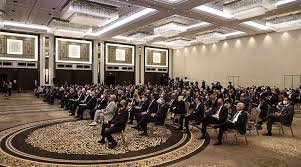How much tourism is too much? There seem to be at least two different approaches. One is to invite tourists to your
country to enjoy and respect what is on offer without changing your own traditions/values
or risk damaging the environment just to
attract the mobs. The other approach is to attract the masses at any cost,
regardless of the damage to those traditions and the very environment that
makes your location attractive and unique in the first place.
Some popular destinations like Amsterdam
and Venice are finally taking steps to limit the ravages of mass tourism.
Amsterdam officials have gone so far as to ask tourists not to come there.
Venice is levying heavy fines for bad tourist behaviour like littering,
disrespecting monuments or – like two idiotic Australian tourists – taking power surfboards down the Grand Canal. Venice has fought a long battle to save
its precious canals and ancient, fragile building foundations from the damage
caused by enormous cruise ships that blot out the sun and dump thousands of
tourists onto its narrow, twisting streets. Some of the beautiful, equally
fragile Norwegian fiords have also been plagued with these cruise ships that
can barely fit into narrow harbours. Fortunately the country is beginning to
learn the value of just saying ‘No’ and is taking steps to limit that damage.
 |
| Tourism? Or Vandals sacking Rome -- again? |
Other countries like Greece seem to have
taken the attitude that there is no such thing as too many tourists munching
over-priced souvlakis and cheese pies while slurping beers as they
wander around some of the most precious monuments in the world. What should be
moments of reflection in front of some of these monuments has turned into a
cacophony of flip-flops slapping on the ancient marble, loud yells to have
friends join them for yet another selfie in front of a statue, moans about the
heat (didn’t anyone tell them about Athens in July), or comments about the lack
of a loo in the Parthenon.
Athenian hotels now try to outdo
themselves with roof-top bars blaring music (?) until dawn and making life
unbearable not just for guests unfortunate enough to have rooms in the hotel
but also for the hapless residents of the neighborhood who actually have to get
up at a decent hour and go to work. But somehow those tax-paying residents
don’t seem to count for much in the eyes of city officials. Perhaps the city
will start offering them grants to leave the city in the summer and head to
some remote part of the country. God forbid they should start telling tourists
how to behave!
Yes, Greece has had a very difficult economy for the last several years and many people believe that mass tourism is the best solution for their difficulties. But these people fail to realize that this sort of tourism is rapidly destroying the very thing that makes places like Greece, with its beautiful sea, idyllic islands, and much-overlooked mountains so special.
Take Mykonos -- essentially a rocky,
barren island with very little water. When I first went there many years ago it
was known as being sort of bohemian, attracting a lot of artists with modest
talents and less money. Now it has been transformed into the party
island of Greece, jammed with wannabe Eurotrash and over-priced bars that don’t
open until midnight and produce ear-shattering noise that doesn’t stop until
dawn. Inevitably the drug culture is never far behind. The harbour is filled
with monster cruise ships waiting to disgorge unsuspecting passengers onto the
overburdened island to wander around the narrow streets and buy authentic
Made-in-China Greek trinkets and souvenirs. Smart passengers stay on board and
order another gin-and-tonic in the comfort of an air conditioned bar. Maybe
it’s not a bad idea to create an isolated spot like Mykonos – rather like the
plague islands outside ancient Venice – and avoid infecting the rest of this
beautiful country.
 |
| Not sure this what Odysseus had in mind |
All these thoughts came to mind when my wife and I took a break from Greece and spent a delightful week in the Alsace region of France. The natural beauty – with hundreds (maybe thousands) of vineyards stretching from the lush green valley up to the foothills of the Vosges mountains – is stunning. These vines produce several delicious wines such as Riesling and Gewürztraminer. Picturesque villages with rich history dot the area. Yes, the area is filled with tourists in August but because of the infrastructure and general attitude toward tourism in general it was not unbearable.
 |
| Beautiful Alsace |
One wishes that Greek tourism officials
would learn the lesson that less is often more. Do they really appreciate the
beautiful and fragile ecosystem of their own country? Or do they think that chasing
the last Euro from mass tourism is worth the destruction? Can they can develop
the courage and, yes, the self-respect to discourage the worst of mass tourism that
only drives away those people who really want to enjoy the culture and natural beauty
of Greece? Overall tourist numbers may decline but the quality of the tourist
experience – as well as the spending – will sharply increase without damaging the
social or environmental fabric of the country.

